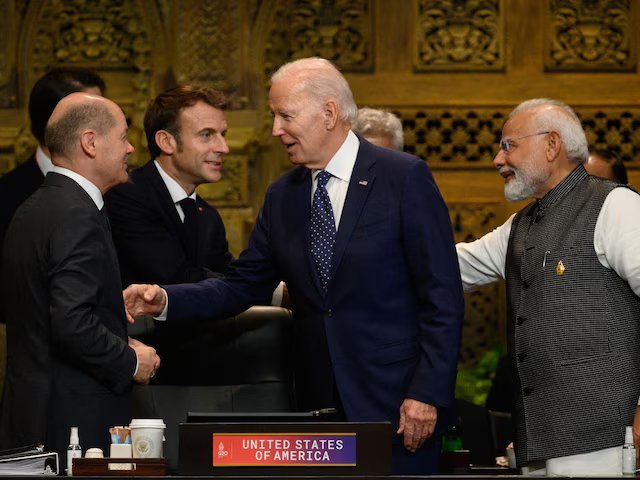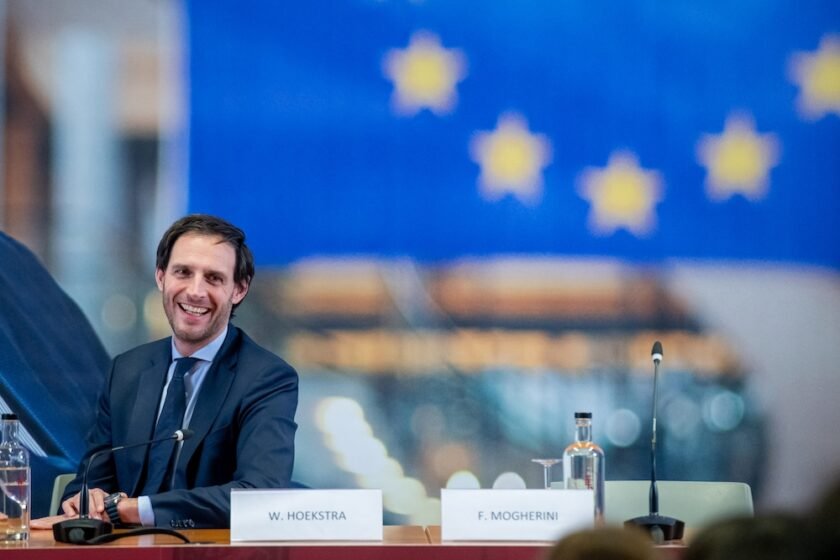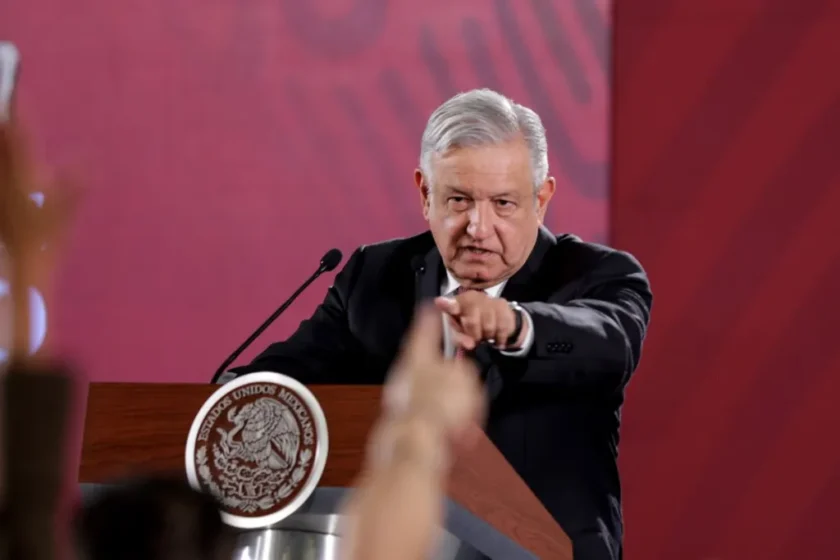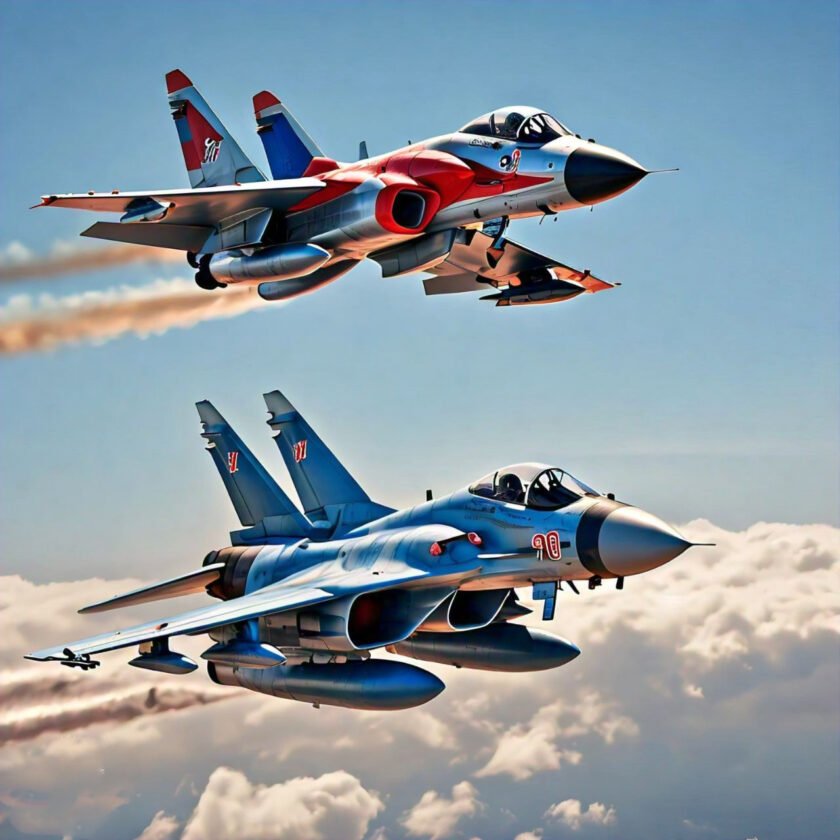Beijing: The geopolitical faultlines of 2024 are indicated by Chinese President Xi Jinping’s plea to French President Emmanuel Macron to avert a new Cold War when the latter is in Europe.
Xi informed Macron, according to Xinhua News Agency, that the two leaders should maintain their mutual advantages and work together to prevent supply chain disruption and decoupling.
A global truce has been demanded by Xi and Macron for the duration of the Olympic Games, which begin in Paris in late July.
At a business conference in Paris with his Chinese counterpart, Macron said, “We are at a historical turning point where threats are at an unprecedented level and the risks of global fragmentation are considerable,” as reported by Bloomberg.
Why are China and the EU at odds with each other?
With the commencement of the conflict between Russia and Ukraine, hostility between China and the European Union began to increase. China never accepted Russia’s takeover of Crimea, but it also never held Russia accountable for its armed operations.
Although China’s stance on the conflict between Russia and Ukraine has been equivocal, Europe has taken it as China’s “passive support for Russia,” according to the Carnegie Endowment for International Peace. Furthermore, every statement made by the Chinese government on the war has been criticized by people in Europe for not placing the blame on Russia.
The US and China are mentioned as two competing groupings in the Carnegie Endowment for International Peace study. Europe is between these two groupings, and China places Europe in the Western basket, implying that it cannot be relied upon.
Brussels’ mistrust of Beijing is also increasing, as seen by the latest wave of trade inquiries and the arrest of suspected Chinese spies, according to Bloomberg.
Additionally, China began looking into alcoholic goods for anti-dumping violations, which might harm cognac manufacturers in France. In general, Bloomberg said that China denies producing excess capacity and accuses the EU of enacting protectionism.
The New Cold War: What Is It?
Though the Cold War ended thirty years ago, as described by former British Prime Minister Winston Churchill in 1946, a new Cold War has emerged that is becoming more global in scope.
In contrast to the US-Soviet Cold War, this one has a multifaceted connection in which China and the West engage in commerce and investment, while China and Russia continue to support autocracy and hostility toward the US by providing the globe with grain, gas, and oil under sanctions.
And now that Israel and Iran have launched missiles at each other, after the Israel-Gaza conflict, there is an obvious division between the China-Russia axis and the US-led West. Iran has become more allied with China and Russia as a result of Shia fundamentalism’s anti-American stance and its support for Assad in Syria.
According to a former director of the Intelligence Bureau’s article in IANS, the White House is worried about the consequences of Israeli action in Gaza, which has killed over 30,000 civilians in Palestine. Pro-Muslim protests both inside and outside the US could potentially undermine US influence in the Middle East and give Russia and China an advantage.
NATO has been extending its reach outside of Europe for some years now, first in the Middle East and subsequently in Afghanistan, from where the United States coordinated its exit. But now, as Foreign Policy reports, NATO is stepping over a Rubicon in Asia.
AHEAD OF THE WORLD?
India is now regarded as one of the world’s most significant developing powers. Given that Washington has reconciled with New Delhi despite its contacts with Russia, India’s ties with the US have become stronger. This is probably due to India’s greater alignment with the US on China.
Russia-Ukraine War: India bought more than a million barrels per day in 2022. India was buying 33 times more Russian oil at the end of the year than it had the previous one.
External Affairs Minister S. Jaishankar said, “I have a country that has a per capita income of two thousand dollars,” notwithstanding the dissatisfaction of numerous western nations with India. These folks can’t afford increasing energy costs,” he said.
India has similarly refrained from supporting Russia’s departure from the conflict or denouncing the fighting in Ukraine, remaining impartial in the conflict since March 2022. This does not, however, imply that India is unaffected by the turmoil in Ukraine.
During the G7 Summit in May 2023, Prime Minister Narendra Modi gave Volodymyr Zelensky of Ukraine the assurance that India will “do everything it can” to support the establishment of peace in Ukraine. In reality, Modi gave Vladimir Putin a gentle prod on the conflict in Ukraine, which led many international leaders to consider New Delhi as a potential middleman between Russia, the West, and Ukraine.
India purchased more Russian weaponry than any other nation between 2017 and 2022, according to the Reuters news agency. Additionally, it is acquiring nuclear submarines, stealth frigates, and S-400 air defense systems from Russia.
Russia’s proportion of India’s arsenal has decreased as the country has expanded its arms trade with the US and France, but the conflict in Ukraine has forced India to diversify its weapons suppliers as Russia finds it difficult to keep up with demand.
Approach to China: In order to preserve regional balance with China, India views its participation in the Quadrilateral Security Dialogue (QUAD), which is made up of the US, Australia, Japan, and India, as essential. India also collaborates more with the US on defense matters.
Joe Biden made the historic announcement that the US and India will co-produce jet engines for fighter aircraft during Modi’s official visit to the US in June 2023. As a result of negotiations conducted under the administration of previous president Donald Trump, India also became the first non-ally to obtain armed US Predator drones.
The Biden administration has made significant investments in its alliance with New Delhi, resulting in frequent military drills and defense discussions between the Indian and American militaries. Additionally, both nations have collaborated in the advancement of artificial intelligence, telecommunications, semiconductors, and technology.
As stated in a CNBC report, “If India can realize its potential as a manufacturing powerhouse and build out value chains that can rival China’s, then it stands to benefit from plans to ‘de-risk’ Chinese supply chains.”
India continues to collaborate with China via the Shanghai Cooperation Organization (SCO) and BRICS despite its security worries about China. However, according to the Ministry of External Affairs, India will continue to serve as the “Voice of the Global South” and promote a more inclusive structure with more representation for developing nations.
India’s viewpoint on the strategic rivalry between the US and China has been succinctly expressed by External Affairs Minister S. Jaishankar: “I would prefer not to be characterized as someone who is fighting against something or someone, since it degrades me. That gives the impression that there are other individuals who are the center of the universe and that my role is to support or oppose them.
Israel-Gaza War: India refrained from voting on a motion calling for an urgent humanitarian ceasefire before the UN General Assembly in October of last year. However, India voted in favor of a draft resolution on a ceasefire in Gaza in December, two months after the conflict started on October 7. As tensions between Iran and Israel increased, the MEA issued a statement saying, “We demand an urgent de-escalation, the exercise of moderation, a retreat from violence, and a return to the diplomatic road. We are keeping a careful eye on how things are changing. Maintaining stability and security in the area is crucial.
India and Israel have strategic connections that include collaboration in a variety of areas, including technology and defense. 2018 saw PM Modi’s travel to Israel, and he got along well with PM Benjamin Netanyahu. India receives significant defense supplies from Israel in addition to the US, UK, France, and Russia. Iran, however, is one of India’s main sources of oil. India has not been allowed to purchase oil from Iran since the sanctions. S. Jaishankar traveled to Iran at the beginning of the year; India has invested in the construction of the Chabahar port.




